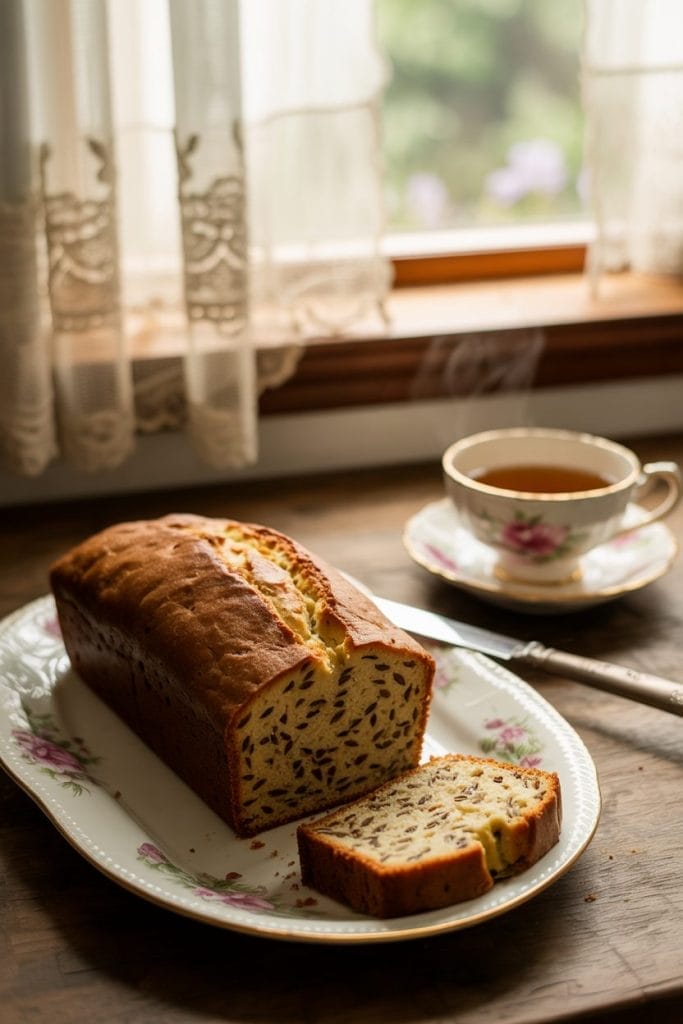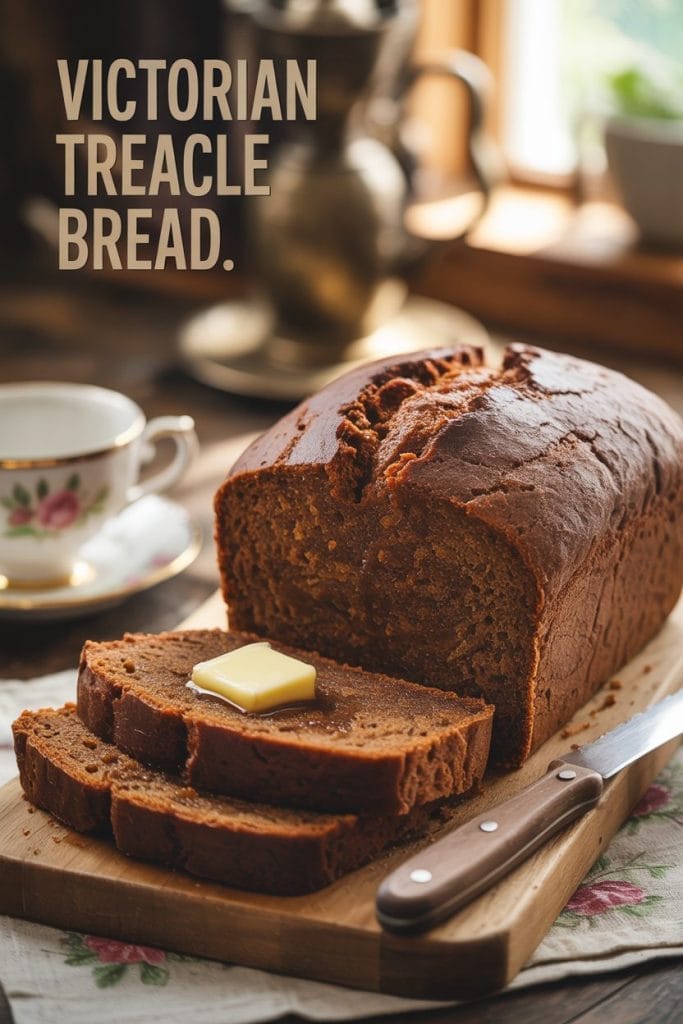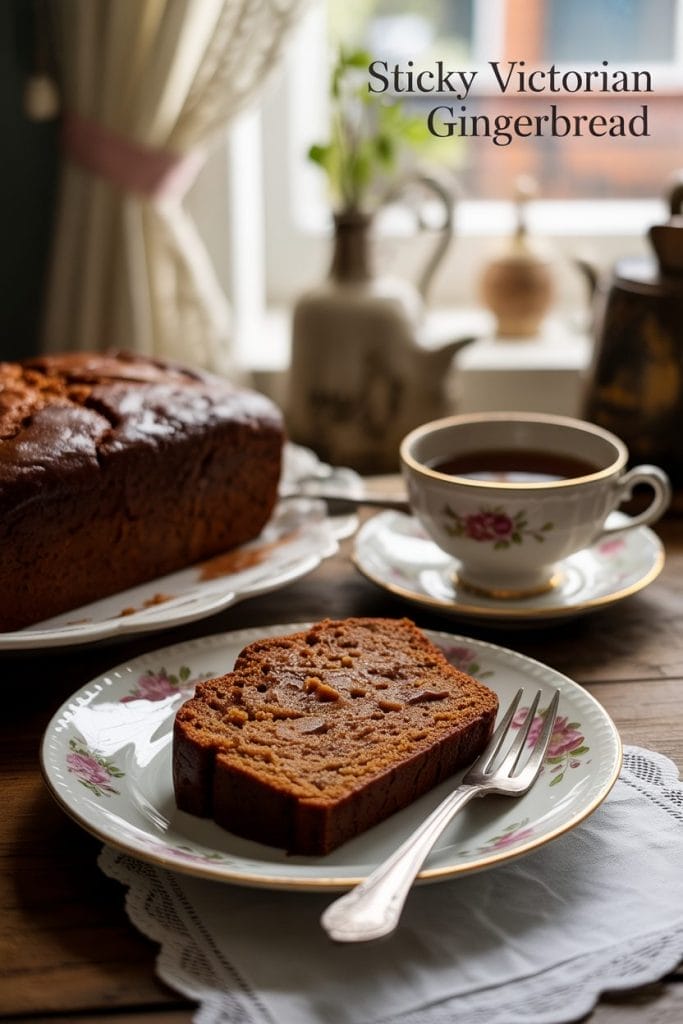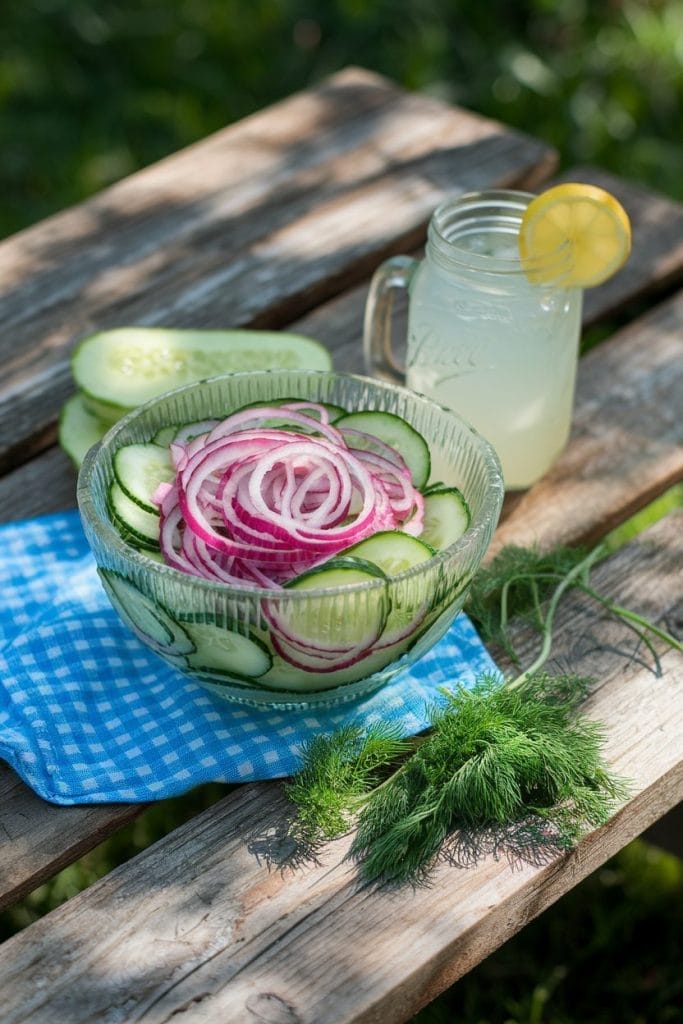Home > Single Recipes > Boston Brown Bread: A Taste of Colonial New England
Last Updated: March 16, 2025
I Made These FREE Vintage Recipe Tools JUST For You
This recipe was created with help from AI tools and carefully reviewed by a human. For more on how we use AI on this site, check out our Editorial Policy. Classic Fork earns a small commission from Amazon and other affiliate links at no extra cost to you, helping us keep our content free and honest.
Boston Brown Bread: A Taste of Colonial New England
Time Period:
Meal Type:
Cooking Time: 1 hour 15 minutes
Prep Time: 15 minutes
Total Time: 1 hour 30 minutes
Servings: 6-8
Calories: ~190 per slice
Boston Brown Bread is a true piece of American history. This dense, slightly sweet, and hearty bread was a staple in early New England households. Made with cornmeal, rye, and whole wheat flour, it was traditionally steamed in a tin can rather than baked, giving it a moist texture. Paired with baked beans, it was a Saturday-night tradition in Boston for generations.

What Would You Cook in Wartime?
Step back in time and discover what you could make with limited wartime rations
History
This bread dates back to Colonial America when wheat was scarce, and settlers relied on local grains like cornmeal and rye. Baking in ovens was also expensive and impractical, so steaming bread became the preferred method.
Families often used leftover molasses from rum production to sweeten the bread, giving it its signature flavor. Boston Brown Bread remains a cherished recipe that connects us to the past.
Equipment
- Large mixing bowl (I love this mixing bowl set)
- Whisk
- Measuring cups and spoons
- 1-quart coffee can or cylindrical loaf pan
- Steamer or large pot with lid
- Wire rack
- Aluminum foil
- Kitchen twine
Ingredients
- 1 cup whole wheat flour
- 1 cup rye flour
- 1 cup cornmeal
- 1 teaspoon baking soda
- 1/2 teaspoon salt
- 1 1/2 cups buttermilk
- 1/2 cup molasses
- 1/2 cup raisins (optional)
- 1 cup water for steaming

Instructions
Step 1: Prepare the Batter
In a large mixing bowl, whisk together the whole wheat flour, rye flour, cornmeal, baking soda, and salt. In a separate bowl, combine the buttermilk and molasses. Slowly pour the wet ingredients into the dry ingredients, stirring until just combined. If using raisins, fold them in at this stage.
Step 2: Prepare the Steaming Mold
Grease a 1-quart coffee can or a cylindrical loaf pan. Pour the batter into the can, filling it about two-thirds full to allow room for expansion. Cover the top with aluminum foil and secure it with kitchen twine.

Step 3: Steam the Bread
Place a wire rack or a folded towel at the bottom of a large pot. Add 1 inch of water and bring it to a gentle simmer. Carefully place the can into the pot, ensuring the water level stays below the top of the can. Cover the pot with a lid and let the bread steam for 1 hour and 15 minutes, checking occasionally to maintain the water level.
Step 4: Remove and Cool
Carefully remove the can from the pot using tongs or oven mitts. Let it rest for 5-10 minutes, then run a knife (Chefs envy this knife set) around the edges and invert it onto a wire rack to cool. Allow it to cool completely before slicing.
Special Notes
- Traditional Boston Brown Bread pairs perfectly with baked beans and butter.
- If you don’t have a coffee can, a heatproof glass or metal container works too.
- For added sweetness, try serving it with cream cheese or honey.
Nutrition (Per Slice)
- Calories: ~190
- Carbohydrates: 40g
- Protein: 4g
- Fat: 1g
- Fiber: 4g
- Sugars: 12g

Maggie Hartwell
Hi there, I’m Maggie Hartwell, but you can call me Maggie—the apron-clad foodie behind Classic Fork! I created Classic Fork because I’m convinced food has a way of telling stories that words can’t. So, grab a fork and dig in. The past never tasted so good!






